General election 2019: The politics of power in Yorkshire
- Published
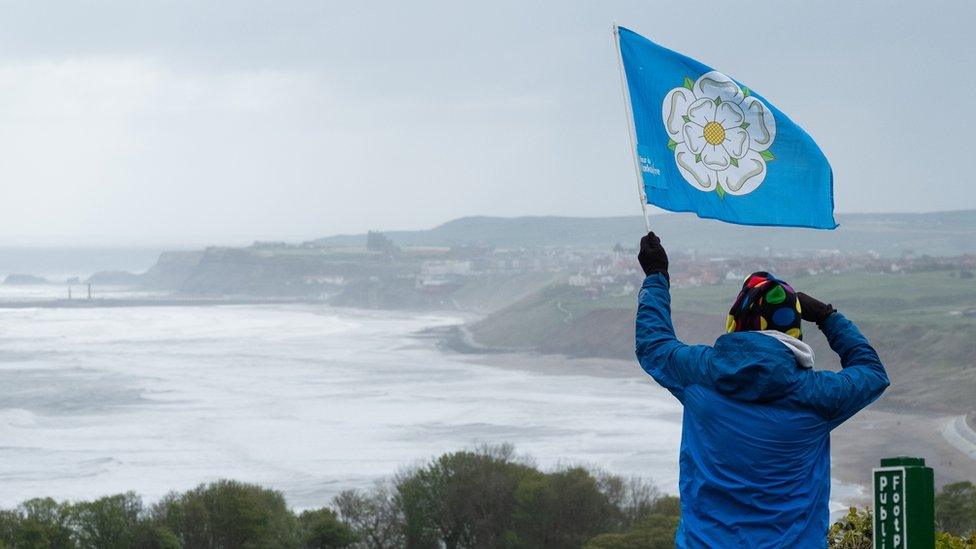
Does Yorkshire want a party of its own in power?
Yorkshire is a place that sees itself as separate, unique, in a way not dissimilar to how Texans feel about their own huge corner of the United States. But in this sprawling chunk of England - one that declares itself God's Own Country - a party has grown that wants devolved power for its people.
Besides comparing its rolling dales and breathtaking vistas to a slice of heaven on earth, Yorkshire's fiercely independent streak is perhaps best exemplified by the actions of those who call it home.
In sport, the county has its own "international" football team. At the 2012 Olympics, a Yorkshire medal table was drawn up showing how it would have fared had it been a country. Its sports stars raked in 10 medals between them, putting them 13th in this fictional ranking - a feat bettered at Rio in 2016 when Yorkshire would have come 12th.
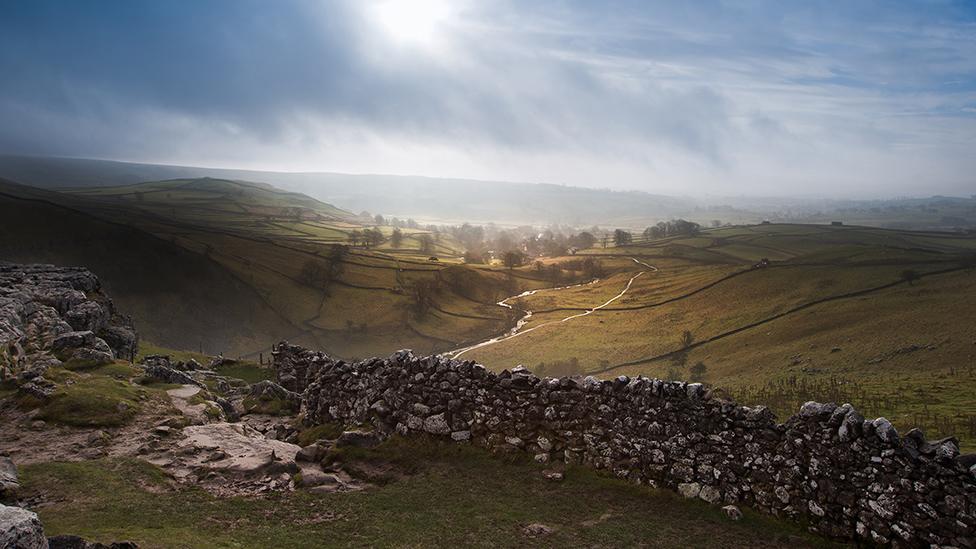
Yorkshire's rolling dales and breathtaking vistas are among its biggest tourist attractions
In politics, the desire for independence has been rumbling since 2014, when the Yorkshire Party was formed. It is campaigning for a directly elected assembly for the region and is fielding a record number of candidates - 28 - in the general election.
It has already had success at a local level, with seven councillors elected to the North Yorkshire and East Riding of Yorkshire authorities. In the last general election the party came sixth in the share of the English vote, with its 21 candidates receiving 20,958 votes. The party came third in the Don Valley, Doncaster Central, and Wakefield constituencies.
"Our approach is that we have a single, directly elected Yorkshire assembly," says its leader Chris Whitwood. "Because Yorkshire has got a population of 5.5 million, larger than Scotland. The economy is twice that of Wales and yet we have no unifying voice."
At 28, Mr Whitwood is young for a party leader - he is 11 years younger than the Liberal Democrat leader Jo Swinson. He believes the recent results show there is "an appetite for a regional party in Yorkshire" - one he describes as "pretty centrist".
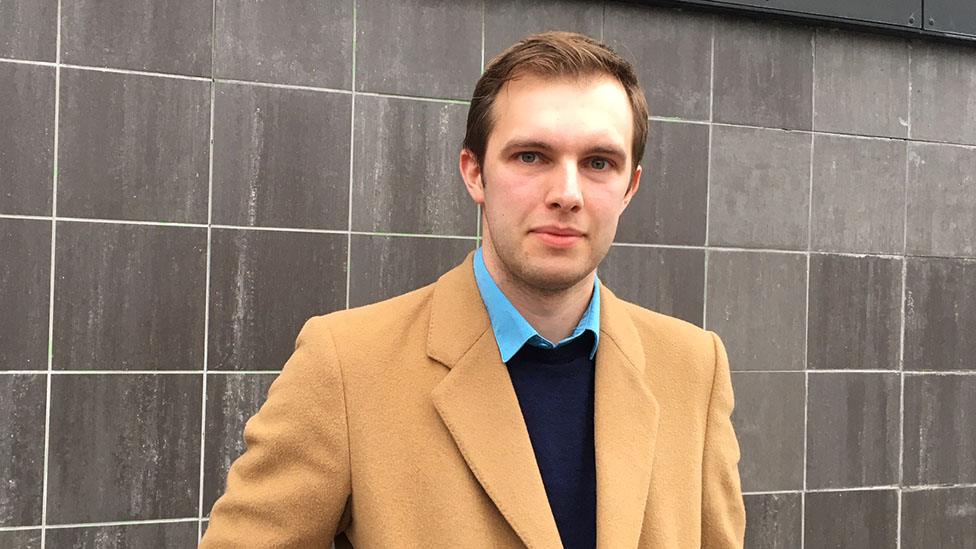
Chris Whitwood, 28, is one the youngest party leaders in the UK
But one of the main problems is funding, he says.
"We don't have trade unions throwing money at us or multimillionaire backers. Our candidates often pay their own deposits or part of their deposits to stand in the general election."
Unlike in Wales, Scotland and Northern Ireland, nationalist or regional political parties have not fared well in England.
Dr Matt Cole, from the University of Birmingham, says plans for England-wide devolution were abandoned by the Labour government in 2004 when a referendum on whether to introduce a North East assembly was rejected by voters, external by a margin of 4-1.
Regional parties have historically had limited success at the ballot box and usually rely "upon a region or area having an existing sense of identity, and then on an issue arising which plays to that sense of identity", says Dr Cole.
"They also suffer because of the electoral system: it is hard to persuade electors that supporting a very small, new party will not be a wasted vote."


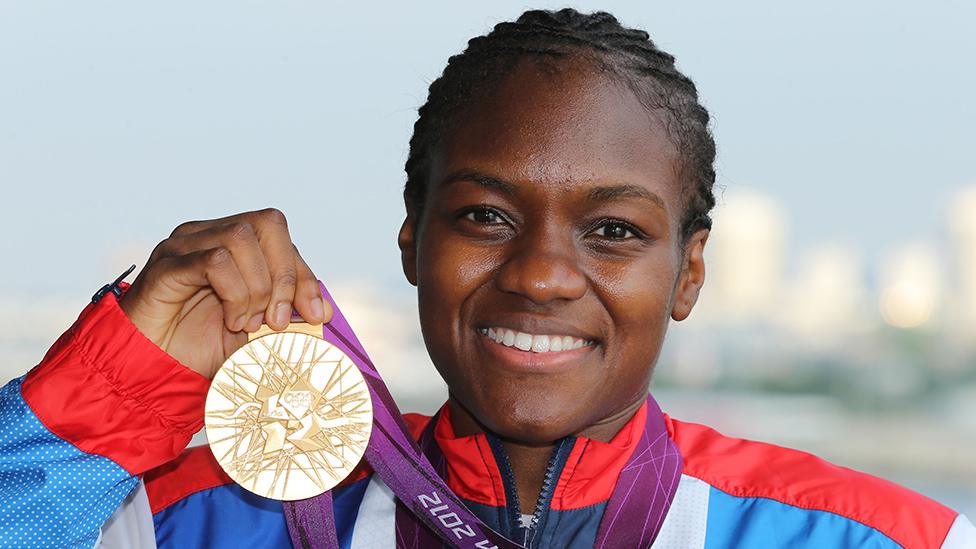
Leeds boxer Nicola Adams was one of seven Yorkshire athletes to win gold at the London Olympics
On the streets of Sheffield, Dr Cole's analysis seems to chime with potential voters.
Terry says he is not aware of the Yorkshire Party and won't be voting for them: "Unless there is change at the top nationally then locally you can't really push massive changes."
Jasmine has heard of the party, but has reservations. "I think it is too much about one part of the country and that doesn't quite work for me," she says.
Charlotte, who plans to vote Labour, says she could be persuaded by the Yorkshire Party's policies.
"There is an attractiveness to that," she says, but there's a caveat: "I'd have to do some more research though."

History of Yorkshire
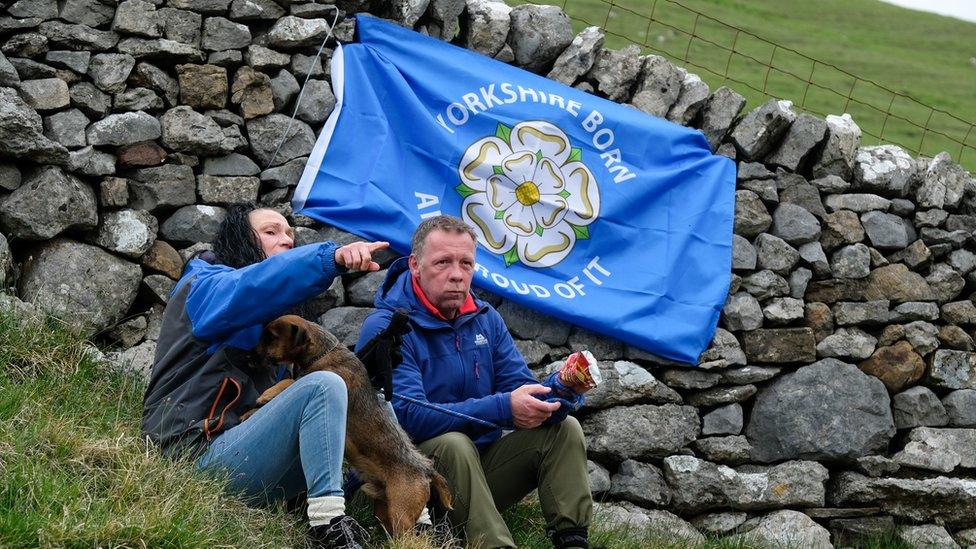
Spectators made their pride in Yorkshire known as they watched the final stage of the Tour de Yorkshire in May
Much of the area which Yorkshire occupies has existed as an entity since the early 7th Century, when it was known as Deira.
It was renamed Jörvikskir in the 9th Century by Viking invaders who organised it into three administrative areas, each third called a Thridjungr, which became Thriding and then later, a Riding.
The administrative boundaries of Yorkshire remained almost unchanged for more than 1,000 years until 1974 when the West, North and East Ridings each became a Yorkshire county. South Yorkshire was also created at this time.
It lost some areas in the shake-up to other local authorities, such as Saddleworth, which became part of the Borough of Oldham, and Yarm, which became part of the Borough of Stockton-on-Tees.
Source: Yorkshire Devolution Movement, external / Yorkshire Ridings Society, external

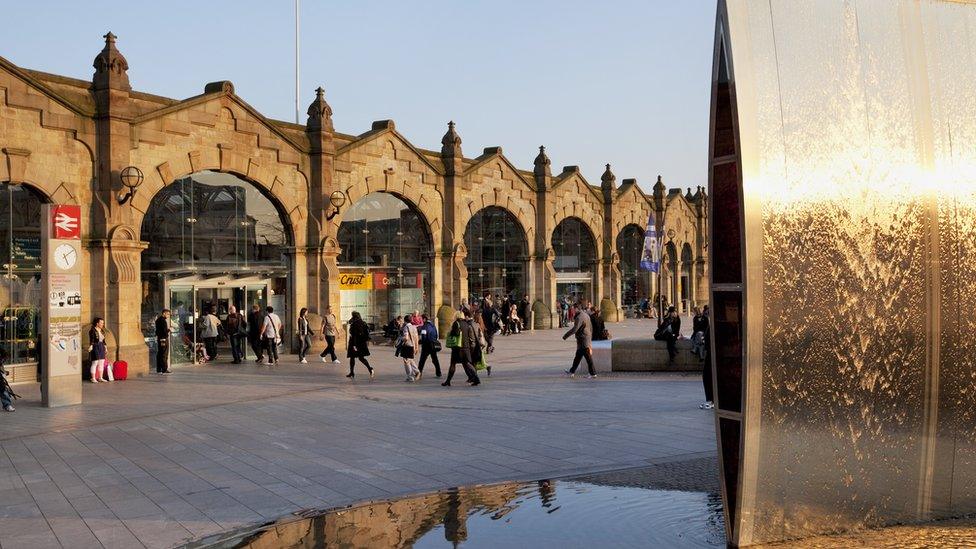
Sheffield opted for a separate South Yorkshire devolution solution
In other parts of England, deals have been struck, showing there is appetite for some form of devolution. In Greater Manchester, an elected mayor now has control of housing, transport. heath and social care as well as parts of the justice system.
This success was not be replicated with the "One Yorkshire" plan. The region's 20 councils could not agree on a deal and the proposal was ultimately rejected by the government.
Sheffield and Rotherham later opted for a separate South Yorkshire solution - a split commented on in 2015 by then prime minister David Cameron, when he was recorded in Leeds in an unguarded moment.
"We just thought people in Yorkshire hated everyone else - we didn't realise they hated each other so much," he quipped.
Mr Whitwood believes despite such setbacks, the county could thrive under its own rule.
"It has the dual advantage of Yorkshire being both a county and region. There is that unifying umbrella and that sense of identity."
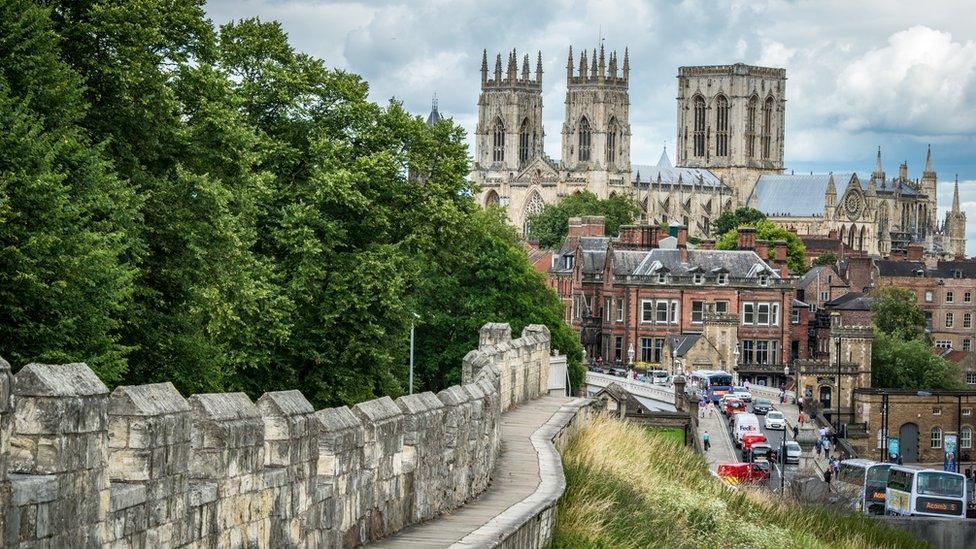
York's roots are steeped in Viking history
He rejects suggestions the party is imposing a sense of "Yorkshireness" on the region.
"There are obviously areas where that's stronger than others," he says. "That's why it is important not to just build an argument based on a cultural identity. It's very important that we look at actually the region as it is now and the region as we want it to be, not just some historic idea of some sort of imagined Yorkshire."
Mr Whitwood says Yorkshire is worse off than other areas of the country - for example London, where he witnessed what he says is a financial disparity in education.
"I used to teach in London, I taught in Islington where schools receive on average around £5,800 per pupil per year. In Sheffield it's £4,286 per pupil per year.
"Why are the children that I taught in London worth more?"
He claims in transport the difference in funding is even more stark, with Londoners getting a subsidy of £3,636 per person compared to Yorkshire's £511 per person.
Mr Whitwood says devolution will "ensure that Yorkshire and the rest of the country is treated fairly rather than having to go cap in hand to Westminster".
The election on 12 December will show whether the county's voters share his vision.
Related topics
- Published11 December 2019

- Published5 December 2019
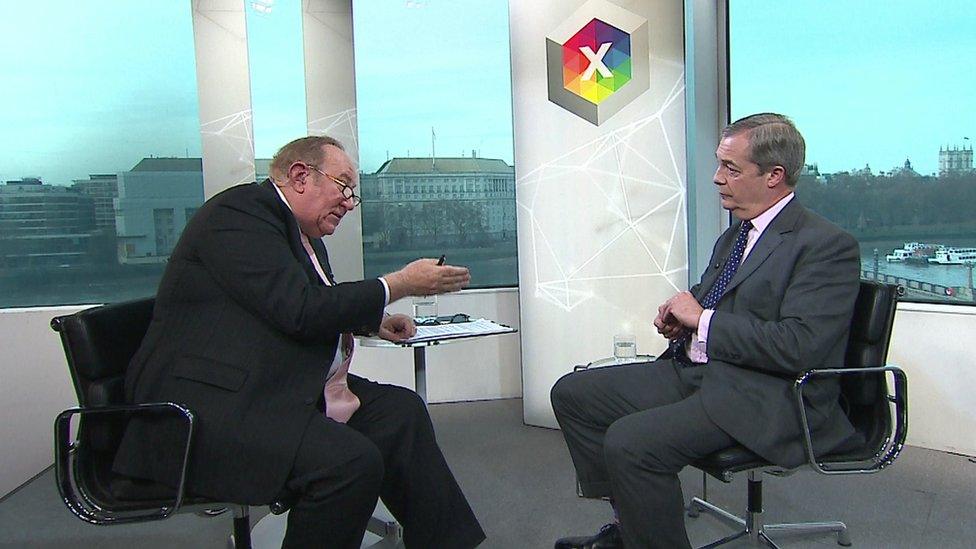
- Published4 December 2019
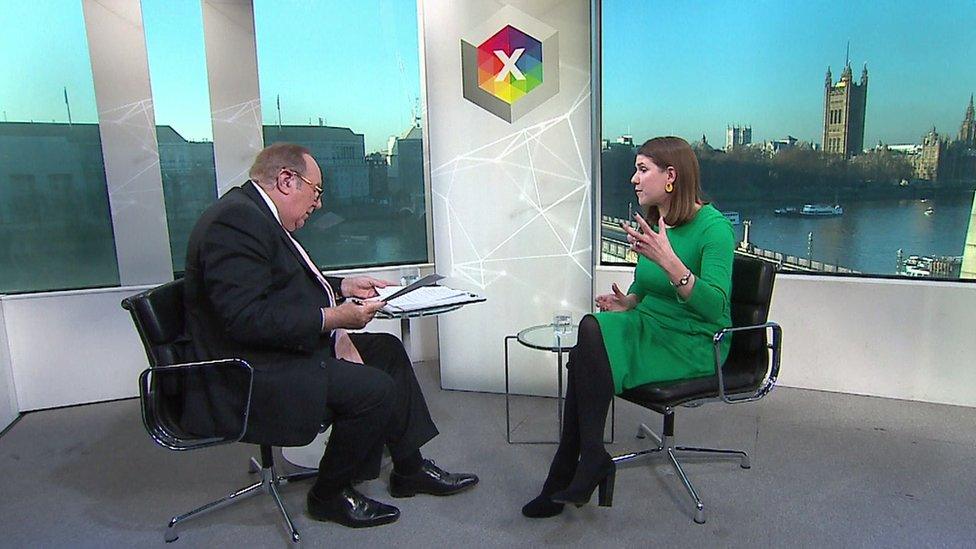
- Published1 December 2019
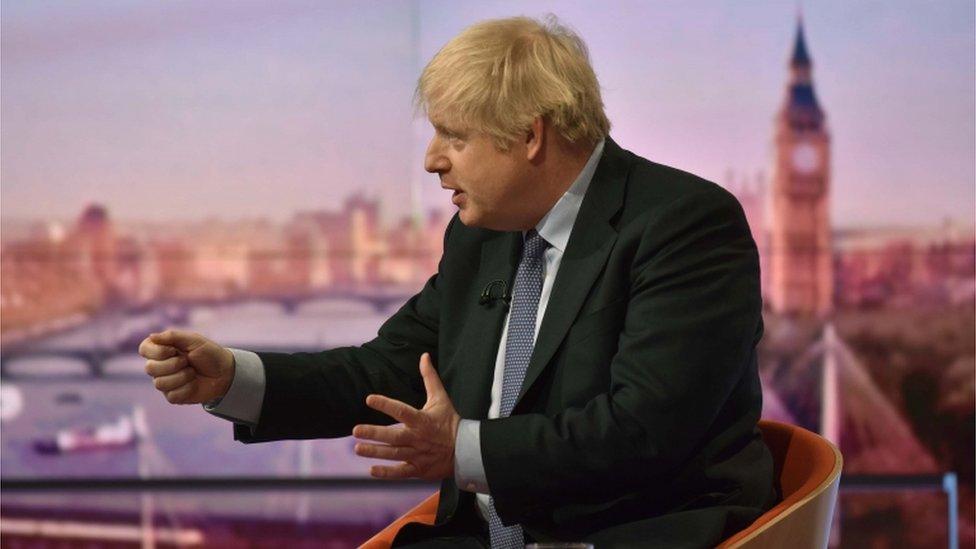
- Published27 November 2019
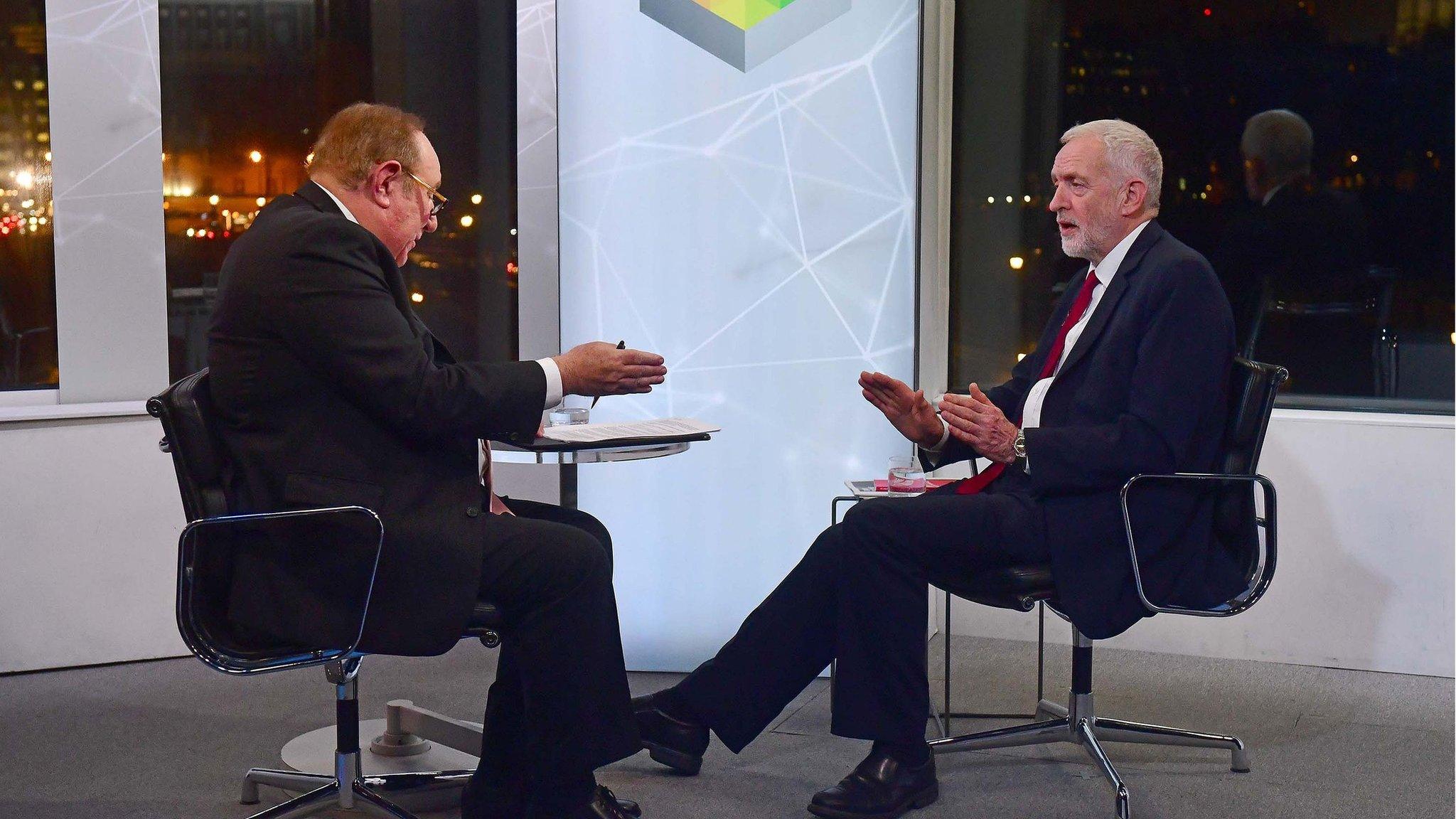
- Published8 May 2019
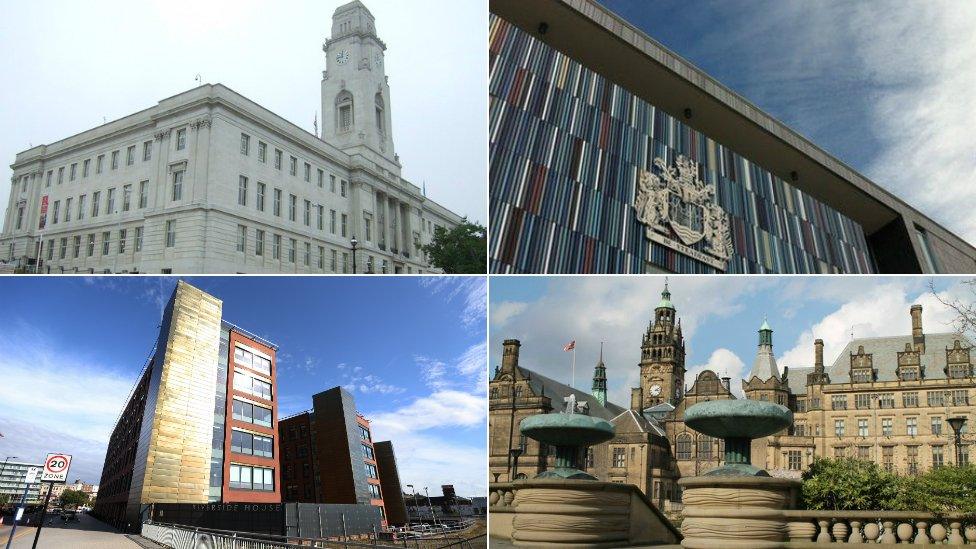
- Published12 February 2019
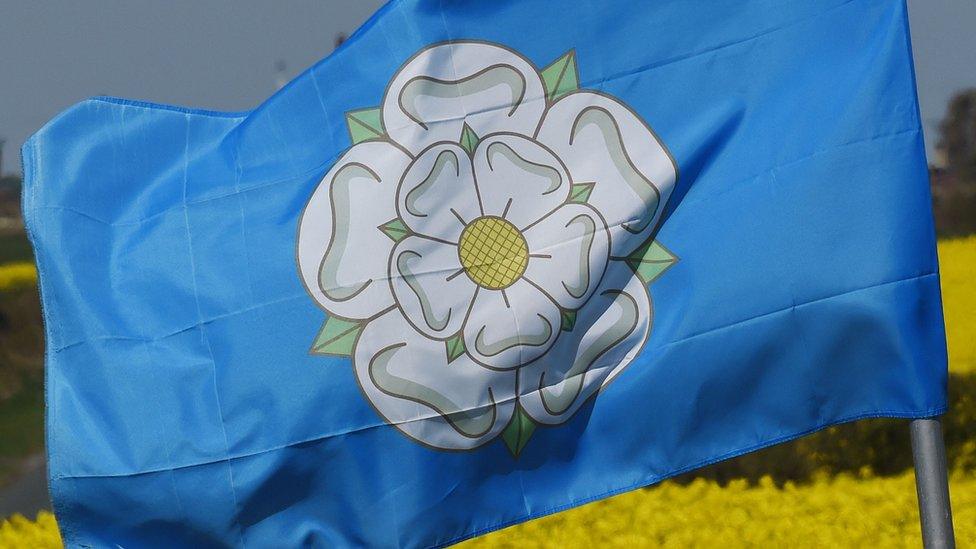
- Published15 April 2018

- Attribution
- Published5 December 2017

- Published11 May 2018

- Published31 March 2016